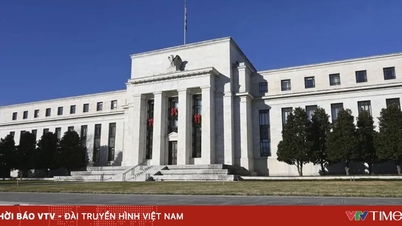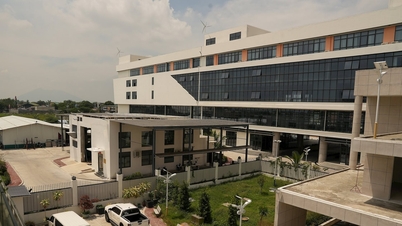Asia's economic growth is expected to remain stable in 2024 despite difficulties in the world's second-largest economy, China, and global geopolitical instability, according to a report by the Asian Development Bank (ADB).

AI helps restore production
Developing economies in the region are expected to maintain growth thanks to resilient domestic demand, the ADB said. The ADB now expects Asia to grow 4.9% in 2024, up from the 4.8% it forecast in December 2023. It also forecasts Asia to grow 4.9% in 2025.
The end of the interest rate hike cycle in most economies and a continued recovery in commodity exports will support growth, said Albert Park, chief economist of the ADB. In addition, consumer confidence is improving, investment is likely to recover and global demand is also picking up. In particular, the boom in artificial intelligence (AI) is providing a strong tailwind for the recovery in Asia's chip manufacturing industry, according to the ADB.
Economies like South Korea could benefit from rapidly rising demand for AI chips and related services. In 2024, the ADB expects stronger growth in South and Southeast Asia to offset a slowdown in other subregions. India will continue to be the main growth driver. According to the ADB, India’s growth is likely to slow from its breakneck pace in 2023 but will still be strong – 7% in 2024 and 7.2% in 2025 – as rising consumption complements investment growth.
Don't be subjective.
The ADB forecasts China's economic growth to slow to 4.8% in 2024 and 4.5% in 2025 from 5.2% in 2023. The Chinese economy continues to be affected by a property crisis and weak consumer demand. The ADB said China's success in tackling the property slump will have implications for the Asian region. Conversely, the property market downturn could spread to its trading partners. The ADB said deflation concerns are another risk as low export prices could fuel deflation.
According to ADB, inflation in Asia is also expected to decline due to slowing food prices and on-track monetary policies, reduced global inflationary pressures and more stable fuel prices. Specifically, inflation in Asia is forecast to decline to 3.2% in 2024 from 3.3% in 2023, before cooling to 3% in 2025.
While the outlook is generally positive, the ADB report highlights vulnerability to geopolitical tensions, which could disrupt supply chains and create inflationary pressures through commodity price shocks. Another uncertainty is the policy stance of major central banks, particularly the US Federal Reserve. The timing of the Fed’s rate cuts is closely watched in Asia because of the knock-on effects from investor sentiment to exchange rates.
KHANH MINH compiled
Source


![[Photo] General Secretary To Lam receives President of the Senate of the Czech Republic Milos Vystrcil](/_next/image?url=https%3A%2F%2Fvphoto.vietnam.vn%2Fthumb%2F1200x675%2Fvietnam%2Fresource%2FIMAGE%2F2025%2F11%2F21%2F1763723946294_ndo_br_1-8401-jpg.webp&w=3840&q=75)

![[Photo] National Assembly Chairman Tran Thanh Man holds talks with President of the Senate of the Czech Republic Milos Vystrcil](/_next/image?url=https%3A%2F%2Fvphoto.vietnam.vn%2Fthumb%2F1200x675%2Fvietnam%2Fresource%2FIMAGE%2F2025%2F11%2F21%2F1763715853195_ndo_br_bnd-6440-jpg.webp&w=3840&q=75)

![[Photo] Visit Hung Yen to admire the "wooden masterpiece" pagoda in the heart of the Northern Delta](/_next/image?url=https%3A%2F%2Fvphoto.vietnam.vn%2Fthumb%2F1200x675%2Fvietnam%2Fresource%2FIMAGE%2F2025%2F11%2F21%2F1763716446000_a1-bnd-8471-1769-jpg.webp&w=3840&q=75)
![[Photo] President Luong Cuong receives Speaker of the Korean National Assembly Woo Won Shik](/_next/image?url=https%3A%2F%2Fvphoto.vietnam.vn%2Fthumb%2F1200x675%2Fvietnam%2Fresource%2FIMAGE%2F2025%2F11%2F21%2F1763720046458_ndo_br_1-jpg.webp&w=3840&q=75)








































































































Comment (0)